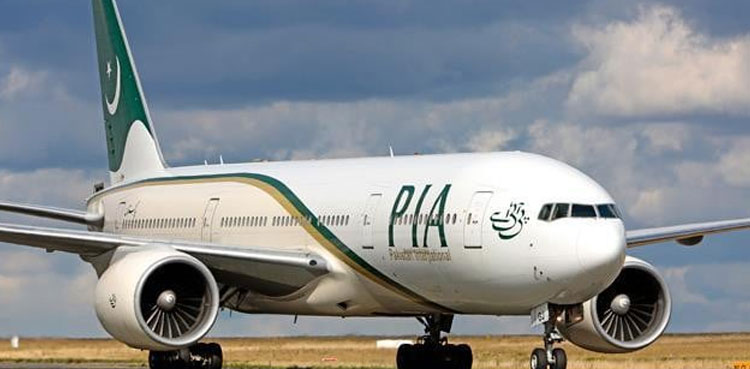
The final bidding process for the privatisation of Pakistan International Airlines (PIA) attracted just one bid of 10 billion Pakistani rupees ($36 million) for a 60% stake in the national flag carrier, the Privatisation Ministry said on Thursday.
The government had pre-qualified six groups in June, but only real-estate development company Blue World City participated in the bidding process, placing a bid that is below the government-set minimum price of 85 billion Pakistani rupees.
Cash-strapped Pakistan was looking to offload a 51-100% stake in debt-ridden PIA to raise funds and reform state-owned enterprises as envisaged under a $7 billion International Monetary Fund programme.
The Privatisation Commission said it had asked the bidder to match the minimum bid.
Blue World City Chairman Saad Nazir however stood by its offer. “We wish the government all the best if they don’t want to accept our bid,” he said during the ceremony.
Nazir later told Reuters news agency that it did not make commercial sense to raise their bid.
“The cabinet is going to discuss this offer of ours. If this doesn’t go through and they don’t accept our offer, we will start our own airline,” he said.
He added that he did not believe the government’s 85 billion minimum price was based on a correct financial model for an organization with “significant leakages”.
Mohammed Sohail, CEO of Topline Securities, said that the gap between the offer and reference price means the government would either need to consider this bid or revisit their strategy regarding the privatisation of the airline.
Pakistan International Airlines (PIA) – News and Updates – ARY News
Officials from three groups that chose not to bid told Reuters on condition of anonymity that there were concerns about the government’s ability to stand by agreements made for the flag carrier in the long term.
One executive voiced concern about policy continuity once a new government came in. The government of Prime Minister Shehbaz Sharif is reliant on a coalition of disparate political parties.
The government did not immediately respond to a request for comment on the concerns.
The disposal of PIA is a step former governments have steered away from, as it has been highly unpopular given the number of layoffs that would likely result from it.
Underpinning concerns over policy continuity and honouring contracts was the government’s termination of power purchase contracts with five private companies earlier this month, and the process of re-negotiating other sovereign guaranteed pacts.
Changes in Pakistan’s decade-old agreements with private power projects to address chronic electricity shortages “raises the risk of investing and doing business in Pakistan, even in the presence of sovereign contracts as well as guarantees,” said Sakib Sherani, an economist at Macro Economic Insights.
Commenting on the power contract renegotiations last month, the head of Pakistan’s power ministry said the government had always maintained contractual obligations to investors, both foreign and local, and that contract revisions would be by “mutual consent”.
Other concerns raised by potential bidders for the PIA stake included inconsistent government communication, unattractive terms and taxes on the sector, and the flag carrier’s legacy issues and reputation.
from Latest Pakistan News and Breaking News from All over Pakistan https://ift.tt/ajHKwoL




Social Plugin